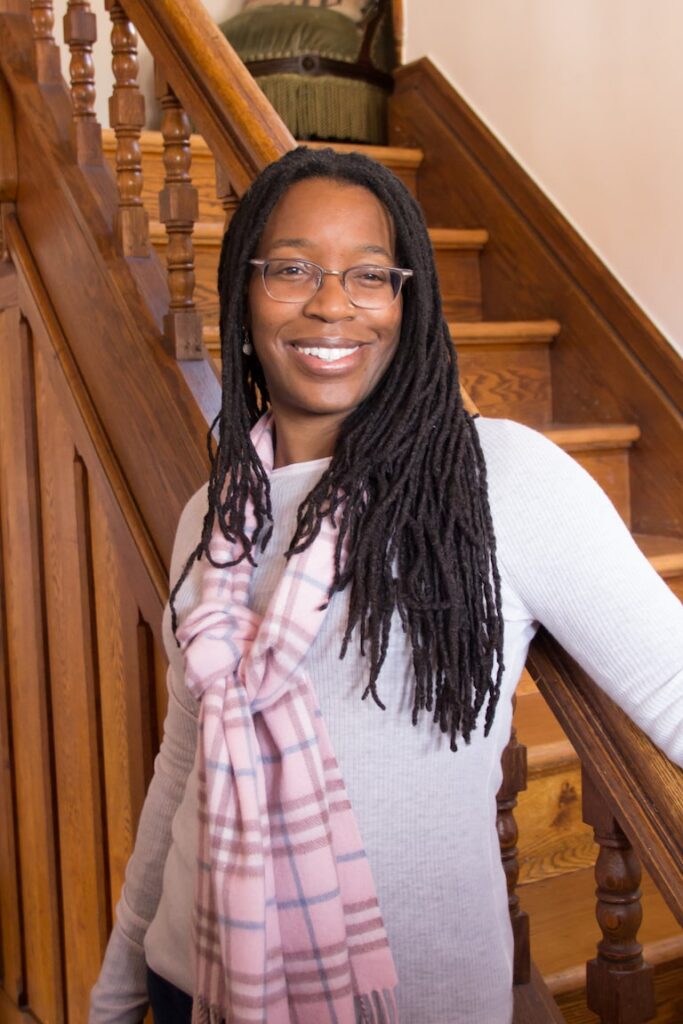Biography
Tiya Miles
Michael Garvey Professor of History, Harvard University
Radcliffe Alumnae Professor, Harvard Radcliffe Institute; Director, Charles Warren Center for Studies in American History, Harvard University
I was born and raised in Cincinnati, Ohio, where my parents and many aunts, uncles, and cousins still reside. I currently live in Cambridge, Massachusetts on a street full of old trees with my husband, the academic psychologist Joseph Gone, and our three children. When my twin daughters were young, I was an avid reader of feminist mysteries. I was then, and I am still, a fan of old houses and chocolate chip ice cream. My favorite color is purple (shading into blue).
I received my A.B. in Afro-American Studies from Harvard University (1992), my M.A. in Women’s Studies from Emory University (1995), and my Ph.D. in American Studies from the University of Minnesota (2000). I spent two years at Dartmouth College serving as the coordinator of the Shabazz African American Center and writing my dissertation with funding from the Ford Foundation and the Dartmouth College Thurgood Marshall Dissertation Fellowship. While in residence at Dartmouth, I co-organized with Stephanie Morgan and Celia Naylor the first national conference on African American and Native American relations. I taught in the Department of Ethnic Studies at the University of California, Berkeley before moving to the University of Michigan in 2002. I taught on the faculty of the University of Michigan for sixteen years as a professor in American Culture, History, Afroamerican & African Studies, Native American Studies, and Women’s Studies. I am the former Chair of the Department of Afroamerican and African Studies, and a former Director of Native American Studies.
I am currently a Professor of History and Radcliffe Alumnae Professor at Harvard University, a public historian, academic historian, and creative writer whose work primarily explores the intersections of African American, Native American, and women’s histories in the context of place. My temporal and geographical zones of greatest interest include the nineteenth-century U.S. South, Midwest, and West.
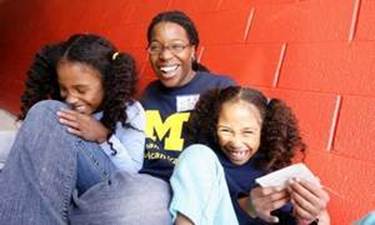
Since 2005 and Hurricane Katrina, I have been increasingly focused on ecological questions, environmental storytelling, and ways of articulating and enlivening Black environmental consciousness. As a result, I developed an environmental education and girls’ self-esteem building project called ECO Girls (Environmental and Cultural Opportunities for Girls in Urban Southeast Michigan). I also had the very good fortune of receiving a Mellon Foundation New Directions Fellowship. I used the fellowship to study environmental history at Montana State University in 2014-15, to complete my books: The Cherokee Rose and Tales from the Haunted South. My latest books, Night Flyer: Harriet Tubman and the Faith Dreams of a Free People (Penguin 2024) and Wild Girls: How the Outdoors Shaped the Women Who Challenged a Nation (W.W. Norton 2023), also explore these themes.
I am the author of eight books and the only current two-time winner of Yale’s Frederick Douglass Prize for the study of slavery, abolition, and resistance. All That She Carried: The Journey of Ashley’s Sack, a Black Family Keepsake (first published in 2021), won eleven prizes, including the National Book Award for Nonfiction, the Cundill History Prize, the Darlene Clark Hine Award for African American women’s and gender history and the Lawrence W. Levine Award for cultural history from the Organization of American Historians, the Joan Kelly Memorial Prize for women’s and gender history from the American Historical Association, the National Council on Public History book prize, and the PEN John Kenneth Galbraith Award for Nonfiction. All That She Carried was a New York Times bestseller and was selected as One of the Ten Best Books of the Year by The Washington Post, Slate, Vulture, and Publishers Weekly and as One of the Best Books of The Year by The New York Times, NPR, Time, The Boston Globe, The Atlantic, The Atlanta Journal-Constitution, Smithsonian Magazine, Book Riot, Library Journal, Kirkus Reviews, and Booklist. I was especially honored to receive an American Historical Association Equity Award in 2022, a mentoring prize for supporting students of all backgrounds and diversifying the historical profession.
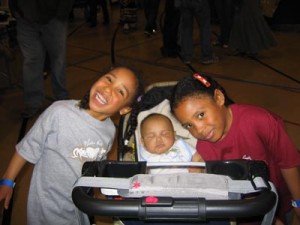
My previous books include: The Dawn of Detroit: A Chronicle of Bondage and Freedom in the City of the Straits (2017; winner of the Merle Curti Award in Social History and James A. Rawley Prize in the History of Race Relations from the Organization of American Historians, the James Bradford Best Biography Prize from the Society for Historians of the Early American Republic, the Hurston/Wright Legacy Award in Nonfiction, an American Book Award, and a Frederick Douglass Prize); my first book, Ties That Bind: The Story of an Afro-Cherokee Family in Slavery and Freedom (2005/2015; winner of four awards from historical, humanities, American studies, and Native American studies associations, including the Frederick Jackson Turner prize from the Organization of American Historians for the best first book in American history, the Lora Romero Prize from the American Studies Association, and recognition from the Native American and Indigenous Studies Association as one of the ten most influential books of the first decade of the twenty-first century); The House on Diamond Hill: A Cherokee Plantation Story (2010; winner of three historical book prizes including the American Society for Ethnohistory Book Prizes and the best book award from the National Council on Public History); Tales from the Haunted South: Dark Tourism and Memories of Slavery from the Civil War Era (2015; a published lecture series), and a work of historical fiction, The Cherokee Rose: A Novel of Gardens and Ghosts (2015; a Lambda Literary Award Finalist; with a revised and updated edition from Random House in 2023). My prize-winning scholarly articles and essays explore nineteenth-century women’s struggles against injustice, conjoined Black and Native histories & literatures, public histories of plantations, and environmental histories and challenges. With the literary critic Sharon P. Holland, I co-edited a collection of essays on Afro-Native lives titled Crossing Waters, Crossing Worlds: The African Diaspora in Indian Country (2007).
I have served as a consultant for the Museum of Fine Arts in Boston, the Eiteljorg Museum in Indianapolis, and the Chief Vann House State Historic Site in Georgia. I am a —still amazed and grateful— recipient of a MacArthur Foundation “Genius Award” Fellowship (2011-2016), a Guggenheim Fellowship (2024-2025), and a Hiett Prize in the Humanities from the Dallas Institute of Humanities and Culture (2007). My work has also been supported by the Mellon Foundation and the National Endowment for the Humanities. I’m currently working on a cultural history featuring Harriet Jacobs and Harriet Beecher Stowe.
I have appeared on various local and syndicated National Public Radio programs to discuss my research and to comment on contemporary issues regarding race and American culture. I have written commentary for The New York Times, CNN In America, and the Huffington Post on issues ranging from Cherokee racial politics to Black History Month, to Detroit public land. In 2011 I was selected for Ebony Magazine’s Power 100 and The Grio’s 100 lists of African American leaders. I have lectured in a range of university and public venues, including the Smithsonian’s National Museum of the American Indian in Washington DC, the National Oceanic and Atmospheric Administration in Washington DC, and the historic St. Philips African Moravian Church in Winston-Salem, North Carolina. A sampling of my lectures and commentary are available on YouTube (but I am too much of a nervous Nellie to ever go watch myself!).
As a public historian, I’ve discovered and written down many stories from the past. But it wasn’t until I wrote my first novel, The Cherokee Rose, that I had the opportunity to integrate my imagination with my previous research. When I write history, I am making an unspoken promise to my readers that I will relate what I know about the past and what I can reasonably interpret as truthfully and accurately as possible. Writing fiction has its own constraints, but I used my knowledge of history as an anchor from which I could imagine the rest. I found my first foray into fiction an enjoyable, challenging, and inspiring experience and I look forward to writing the next chapter.
I love trees, wish I could speak French, and dream of going back to the Caribbean someday.
As a historian, what can’t you live without?
Which invaluable, indispensable and priceless tool helps you carry out the work your profession demands?
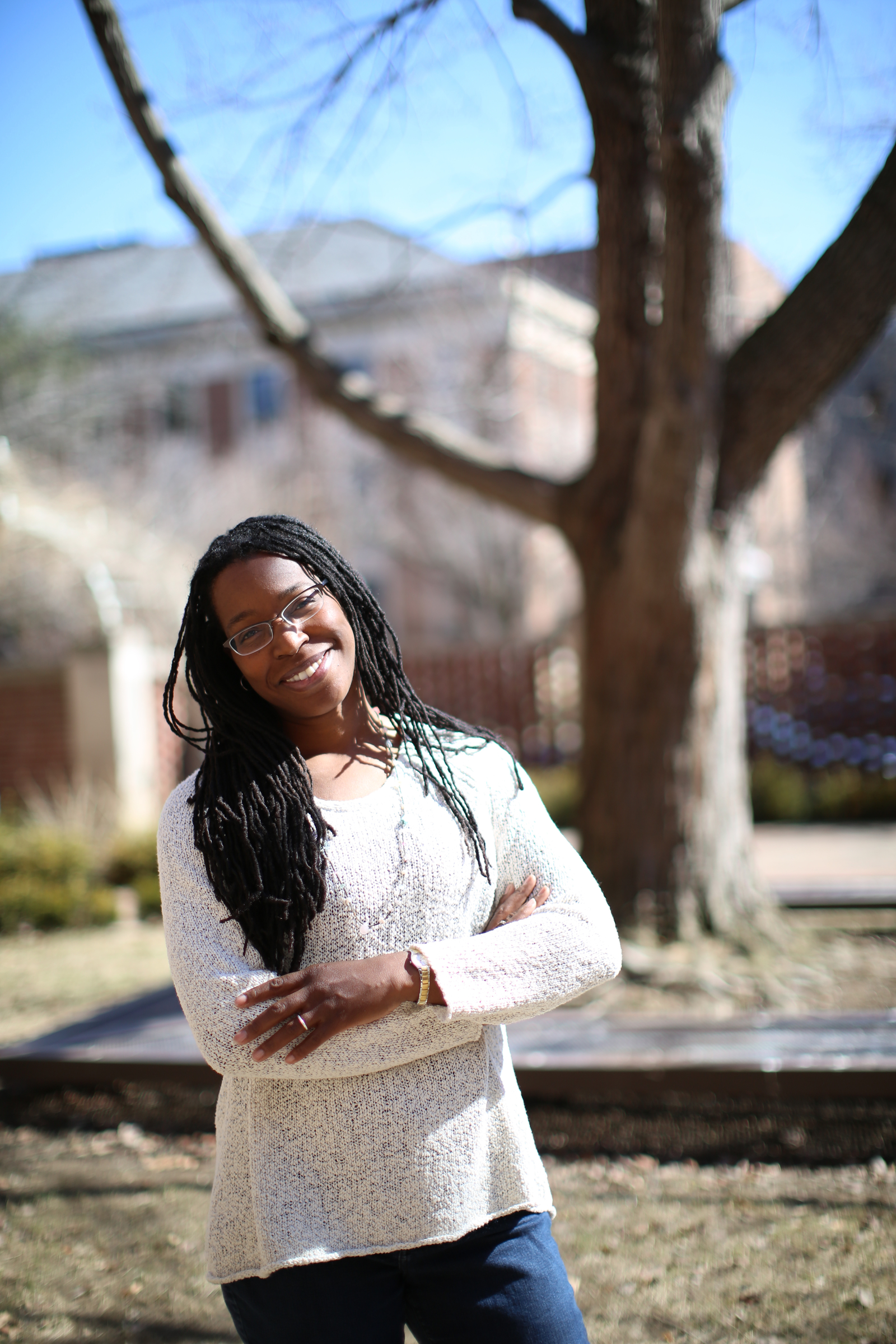
“I can’t live without a view to the outside while I’m writing. Sometimes I look out to reassure myself that the material on my desk or computer screen (almost always pertaining to historical slavery) really is of a different time. Thank goodness for social change. I can’t live without my colorful Post-it notes that proliferate with each new project and cover every inch of my desk. They always include an original note listing core ideas or approaches that I want to weave through a project. The list (on a sky blue Post-it that I still have) for my last work of history, The House on Diamond Hill, was: “grace, restraint, depth.”
– Professor Tiya Miles, University of Michigan
See more author answers.
My grandmother used to tell me stories
My grandmother used to tell me stories about her father, a man born into slavery who claimed African American as well as Native American forebears. His name was Price. He lived in Mississippi as a boy and felt the immediate, transformative effects of the U.S. Civil War. He came of age as a free man, but faced the brutal limitations of unrelenting racial prejudice. He had children; they had children; those children had children, and here I am.
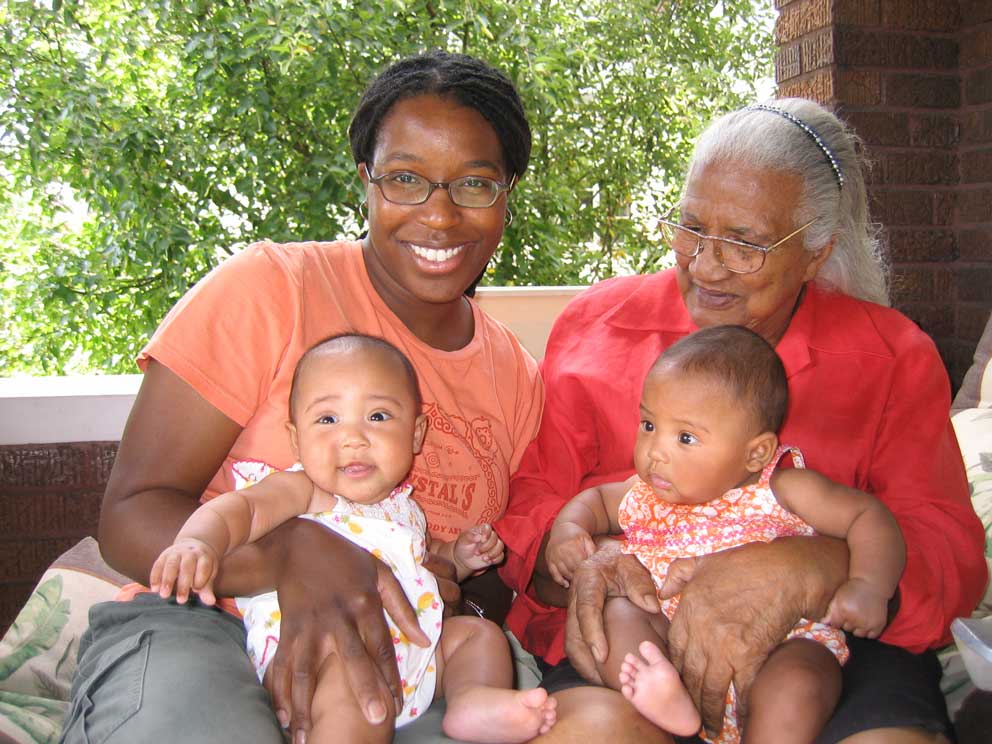
My grandmother never finished grade school. She picked cotton as a girl down South, then cleaned homes for white families to make a living for her own twelve children in the North. She is the most brilliant person I have ever known. When I was admitted to Harvard College, my grandmother told me that one of her employers had a son who was a professor there. She couldn’t believe that her granddaughter would be at the same school, not as his maid, but as a student.
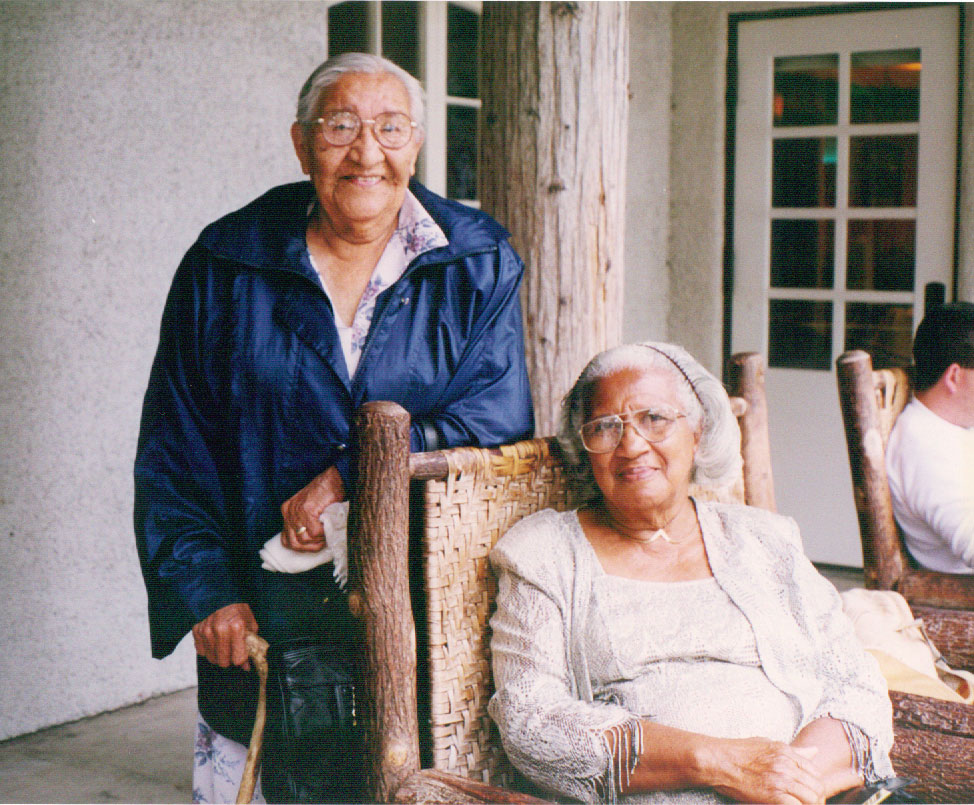
The memory of my grandmother’s beaming pride at my graduation, after all of her years spent stooping down in cotton fields and kitchens, still brings tears to my eyes. She passed away at the age of 90, just before my twin daughters reached their first birthday. She had a lovely funeral. As my grandmother would say, we sent her home in “high cotton.”
The Metaphysics of History
When I travel to give presentations on my work, I most often hear feedback on an interview with Krista Tippett, titled “On Living Memory,” where I talked about the metaphysics of history. Here it is:
The magic of history may be this: with time comes change. So how can we channel that magic? How can we shape that inevitable change for the betterment of our planet Earth and all of her motley residents – the animate and the inanimate, the weak as well as the strong? How can we play our parts in history for the greater good? How can we make history together, aligning in our minds the reality of change and the righteousness of justice?
The Call of the Ancestors
A quotation from my mother, upon learning that I had just won a MacArthur Foundation Fellowship:
Go make your ancestors proud.
The Call of History
A quotation from Toni Morrison, “The Site of Memory”:
[T]hey straightened out the Mississippi River in places, to make room for houses and livable acreage. Occasionally the river floods these places. ‘Floods’ is the word they use, but in fact it is not flooding; it is remembering. Remembering where it used to be. All water has a perfect memory and is forever trying to get back to where it was. Writers are like that: remembering where we were, that valley we ran through, what the banks were like, the light that was there and the route back to our original place. It is emotional memory–what the nerves and the skin remember as well as how it appeared. And a rush of imagination is our ‘flooding.
